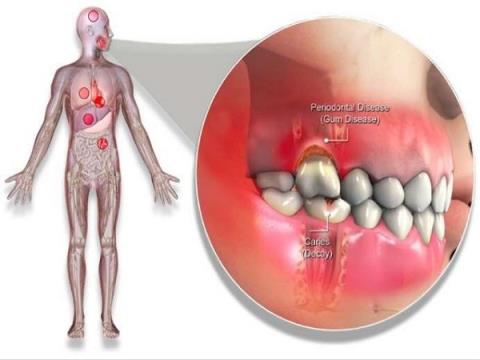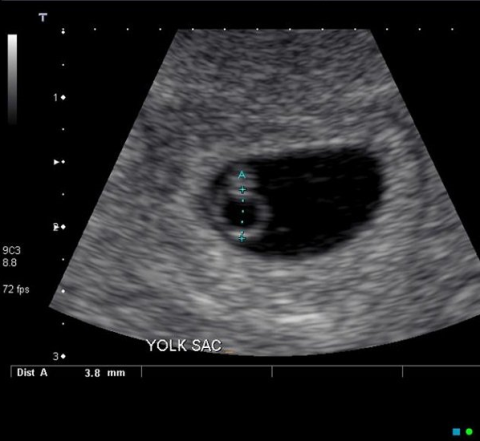Things to know about periodontal disease in pregnant women

Periodontal disease in pregnant women can cause many complications for both mother and baby. Doctor Truong My Linh will help you learn more about this issue

Cough during pregnancy is one of the problems that pregnant women feel anxious about. Coughing not only affects the mother but also the fetus in the womb. There are many causes of cough in pregnant women. So what are the causes? What treatment measures are safe for both mother and baby? All will be answered by SignsSymptomsList through the following article.
content
1. What are the causes of cough during pregnancy?
Coughing during pregnancy is one of the most common symptoms experienced by pregnant women. Cough symptoms can be an itchy throat that causes a common dry cough. There may also be more severe symptoms. These include coughing up phlegm, difficulty breathing, chest pain, and even coughing up blood.
Cough during pregnancy can result from the following causes:

Flu is a common cause of cough during pregnancy
2. Why are women prone to cough during pregnancy?
Women are very susceptible to cough during pregnancy because:

Reflux disease during pregnancy
3. Is it dangerous for a pregnant mother to have a cough?
According to obstetricians and gynecologists, the common cough symptoms of pregnant women do not have much effect on the fetus in the womb. In case the cough is persistent and strong and cannot be controlled, pregnant women should use their hands to support them under the abdomen. This will limit the impact on the fetus.
However, if the cough persists, the cough is caused by an infection, it needs to be treated. Because if you don't take the medicine, the disease will get worse and worse. The disease affects not only the mother but also the baby in the womb.

Persistent cough during pregnancy requires treatment
Pregnant women who have a lot of cough accompanied by poor diet and lack of nutrients will be even more dangerous. Because not only does not provide enough energy for the mother's body but also affects the development of the fetus.
Some of the serious complications that can arise from a cough during pregnancy include:
Therefore, doctors advise: If the cough symptoms persist for more than 2 days without relief, pregnant women should go to the doctor for timely treatment.
>> See more articles on the same topic: 10 important questions that pregnant women should ask when going to the antenatal clinic
4. How to treat cough during pregnancy?
4.1. Non-drug measures
First, pregnant women should apply non-drug measures. Those are folk remedies. This method is applied in cases of colds and coughs due to sensitivity to the weather. Consists of:

Ginger tea helps relieve cough
4.2. Measures to take medicine
Once the cough has worsened, persists. Pregnant women who have applied folk methods are still not relieved. At this time, pregnant women should visit a specialist. Doctors will prescribe drugs that are safe for pregnant women and babies. Remember that you should not buy drugs on your own. Some safe cough medicines for pregnant women that you can refer to include:

Cephalosporin antibiotics are safe for pregnant women
5. Preventive measures
As the article provides, coughing during pregnancy can range from mild to severe. The level of risk is also variable and unpredictable. Therefore, it is best for pregnant women to prevent disease rather than cure it.
Preventive measures include:

Fortified with vitamin C to improve resistance
6. Vaccination problem
Causes of cough during pregnancy can include whooping cough, pneumonia, and flu. Therefore, to prevent disease during pregnancy, pregnant women should get vaccinated.
Vaccines that women should get if they plan to become pregnant include:

Measles - Mumps - Rubella vaccine
Vaccinations before pregnancy and during pregnancy are very beneficial for women:
Hopefully with the information that the article has provided, readers will have a better understanding of cough during pregnancy . From there, you will have the most appropriate preventive measures as well as treatment. At the same time limit certain risks to yourself and the development of the fetus.
>> Refer to more articles on the same topic: What you need to know about vaccinations during pregnancy
Periodontal disease in pregnant women can cause many complications for both mother and baby. Doctor Truong My Linh will help you learn more about this issue
The article by Doctor Nguyen Lam Giang about cough during pregnancy is one of the issues that pregnant women feel worried about. Let's find out with SignsSymptomsList.
The yolksac, also known as the yolk sac, is a small, membranous structure located outside of the embryo. There are many different functions in embryonic development.
Doctor Le Ngan Cam Giang's article on whether to drink coconut water during pregnancy is a question many people ask.
Lung maturation injection helps fetal lungs develop more quickly. Learn about the benefits and side effects of this injection with SignsSymptomsList.


